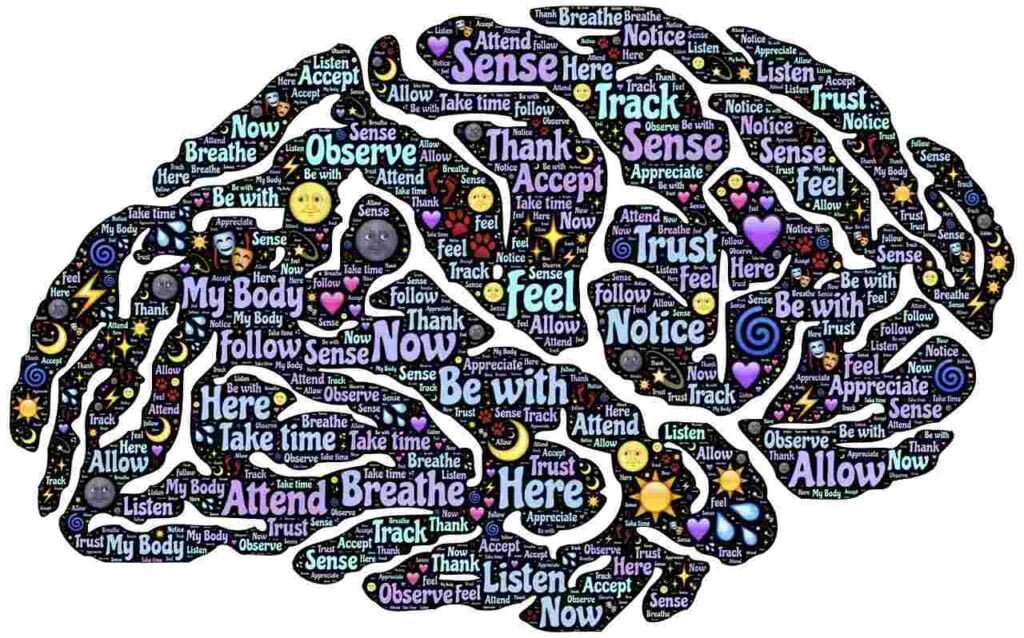
Understanding Emotional intelligence (EI)
Our emotions play a large role in our lives, and our relationships with others. Capturing and harnessing that power can lead to different outcomes than if you had tried to ignore it. It is important to define what emotional intelligence is and develop ways to strengthen it in order to make profound changes in our lives.
Emotional intelligence (EI) is the capacity of an individual to understand, manage, and effectively express their own emotions, as well as perceive, comprehend, and react appropriately to the emotions of others. It is often confused with other related terms such as social skills or an understanding of one’s own feelings. However, EI encompasses a far greater range of skills and abilities than just these two areas.
In this article, we will explore nine things that you didn’t know you were missing out on when it comes to developing your emotional intelligence.
1- What is Emotional Intelligence?
Emotional intelligence is a term that has been thrown around lately and it can be difficult to define.
Generally speaking, emotional intelligence is the ability to be aware of and manage your emotions, and the emotions of others.
It can be thought of as the opposite of emotional IQ, which is the ability to reason and think abstractly about emotions.
There are many different facets to emotional intelligence, and it can be measured in a variety of ways.
But in general, emotional intelligence is about being able to understand and manage your emotions, and the emotions of others.
It can be thought of as the opposite of emotional IQ, which is the ability to reason and think abstractly about emotions.
So, what are the some things you may not have known about emotional intelligence?
1. Emotional intelligence is important in all aspects of life.
2. It can help you in your personal relationships, your job, and your overall well-being.
3. It is something that can be improved with practice.
4. It is not a personality trait, and everyone doesn’t have the same level of emotional intelligence.
5. It is not a weakness, and people who have high emotional intelligence aren’t necessarily always positive.
6. It is not a one-time event, and it can be developed over time.
7. Emotional intelligence can be learned, and there are many resources available to help you.
2- The Importance of Emotional Intelligence
There is no denying the importance of emotional intelligence in today’s world. We are constantly surrounded by technology and people who are emotionally intelligent can take advantage of this.
They are more likely to be successful in their careers, relationships, and overall lives. Here are some things about emotional intelligence that the general public may not be aware of or perhaps misunderstands.
1. Emotional intelligence is not just about being able to read and understand emotions.
2. Emotional intelligence is not just about being able to control your emotions.
3. Emotional intelligence is not just about having a strong personality.
4. Emotional intelligence is not just about being able to solve problems.
5. Emotional intelligence is not just about being able to communicate effectively.
6. Emotional intelligence is not just about being able to sympathize with others.
7. Emotional intelligence is not just about being able to give positive feedback.
8. Emotional intelligence is not just about being able to control your emotions.
9. Emotional intelligence is not just about having a positive outlook on life.
3- Signs of an Emotionally Intelligent Person
If you’re looking for someone who is emotionally intelligent, you may be in for a bit of a challenge. After all, there are a lot of things that make up an emotionally intelligent person.
Signs of an emotionally intelligent person can be difficult to spot. After all, many of the things that make someone emotionally intelligent are not outwardly apparent. But here are some things that you may consider to be signs of someone who is emotionally intelligent.
1. They are able to understand and handle emotions well.
2. They are able to think abstractly and solve problems creatively.
3. They are able to maintain a positive attitude in difficult situations.
4. They are able to take others into account when making decisions.
5. They are able to empathize with others.
6. They are able to focus on the big picture.
7. They are able to stay calm under pressure.
8. They are able to be patient.
9. They are able to reflect on their own emotions.
4- How to Improve Your Emotional Intelligence
There are many ways to improve your emotional intelligence, and this article will discuss several of them.
1. Learn to identify your emotions.
This is probably the most important step, as without knowing what you’re feeling, it’s hard to manage them effectively.
2. Understand your triggers.
Once you know what emotions you’re prone to, you’ll be able to avoid things that set them off.
3. Practice self-compassion.
When you’re feeling down, it can be helpful to remember that you’re not alone and practice self-compassion.
4. Connect with others.
One of the best ways to improve your emotional intelligence is to connect with others.
5. Be mindful.
When you’re paying attention to your surroundings and your own thoughts, you’ll be able to better manage your emotions.
6. Exercise.
Regular exercise can help improve your mood and emotional intelligence.
7. Learn about cognitive behavioral therapy.
CBT is a type of therapy that focuses on changing negative thoughts and behaviors.
8. Meditate.
Meditation can help you focus and calm down, both of which can help improve your emotional intelligence.
9. Make a plan.
Having a plan for how to improve your emotional intelligence is important, as it can help you stay on track.
5- The Classic Signs of an Emotionally Intelligent Person
So, what are some signs that someone is emotionally intelligent?
Some of the classic signs of someone who is emotionally intelligent are that they are able to control their emotions, are able to see the big picture, and are able to think outside the box.
These are all traits that are necessary in order to be successful in any area of life, and are especially important in the field of emotional intelligence.
By being emotionally intelligent, you will be able to better manage your emotions and interactions with other people, which will make you a more successful individual overall.
6- The Fascinating Research on Emotional Intelligence
There has been a lot of research conducted on emotional intelligence (EI) in the past few decades. And the findings are fascinating.
What is emotional intelligence?
Emotional intelligence is a term used to describe a person’s ability to perceive, understand, and manage their emotions. It is considered to be a key component of overall intelligence.
What are the some things about emotional intelligence that the general public may not be aware of or perhaps misunderstands?
1. Emotional intelligence is not just about being able to handle emotions well. It is also about being able to understand and manage emotions of others.
2. Emotional intelligence can be measured through tests such as the Mayer-Salovey-Caruso Emotional Intelligence Test (MSCEIT).
3. Individuals with high emotional intelligence are generally more successful. They are less likely to suffer from mental health issues, have better relationships, and are more likely to be successful in their careers.
4. Emotional intelligence is not just about feeling emotions. It is also about being able to understand and use emotions to achieve goals.
5. People with high emotional intelligence are more likely to be happy and satisfied with their lives.
6. People with high emotional intelligence are better able to manage stress and cope with adversity.
7. People with high emotional intelligence are better able to manage relationships.
7- Facts About Emotional Intelligence
There is a lot of talk about emotional intelligence (EI), but what is it, really?
EI is a term that has come to be used to describe a person’s ability to be aware and manage their emotions.
Some of the key attributes of EI include the following:
• Become aware of your own emotions
• You must be able to identify and understand the emotions of others
• Having the ability to control and manage your emotions
• Being able to respond effectively to emotional situations
These are just a few of the key factors that make up emotional intelligence.
There are many things that people may not be aware of about their own emotional intelligence, or they may misunderstand them.
For example, some people may think that being emotionally intelligent means being able to control their emotions all the time.
In reality, it is possible to have strong emotional control one moment and not be in control of your emotions the next.
Similarly, some people may think that being emotionally intelligent means being able to read other people’s emotions perfectly.
This is also not always the case.
Being emotionally intelligent means being able to manage your emotions in a healthy way, regardless of the situation.
Overall, emotional intelligence can be described as the ability to be aware and manage your emotions in a positive way.
This can lead to a more enjoyable life and positive relationships.
8- What are some tips for becoming emotionally intelligent?
Be aware of your own emotions. Don’t take things personally. Seek out and listen to others. Be open to change. Be humble. Don’t be afraid to experiment. Practice empathy. Be forgiving. Practice moderation.
It’s true that we all have an emotional intelligence quotient (EIQ). But how many of us are aware of exactly what that means, or how it can help improve both our personal and professional lives?
The key to understanding this concept lies in its definition: “Emotional intelligence is the ability to recognize, understand, and manage our own emotions, as well as the emotions of others.”
9- Why increase your Emotional Intelligence
Emotional intelligence is a term that is thrown around a lot in the business world, and for good reason.
Many people believe that if they can just increase their emotional IQ, they will be able to succeed in their business endeavors.
However, what many people don’t realize is that emotional intelligence is not only about being able to read people, but also being able to understand and manage your own emotions.
This article discussed several things about emotional IQ that many people may not have been aware of or perhaps misunderstood. It hopefully shed some light on emotional IQ so that you will have a greater understanding and gained some insight about the topic. Leading you to wanting to increase your own emotional IQ.
So to review: what is emotional intelligence?
There is no one-size-fits-all answer to this question, as everyone has their own definition of emotional intelligence. However, in general, emotional intelligence is the ability to be aware and manage your emotions, both in and outside of your social circle.
This includes being able to understand and empathize with others, and being able to take action based on the emotions you feel.
This is an important skill to have, not only in business, but in any area of life.
If you want to be successful, or even just happy, learn more about your emotional intelligence and start working on increasing your own emotional IQ.
Final Conclusions
In conclusion, understanding emotional intelligence is crucial not only for personal growth but also for professional development. By applying the principles outlined in this article, you can develop your emotional intelligence and reach greater levels of success in your personal and professional life. Don’t miss out on this opportunity to enhance your emotional IQ. Start incorporating these tips today and watch as your interactions become more effective and your relationships flourish. Increase your emotional IQ and enjoy the many benefits that come with it!










1 Comment